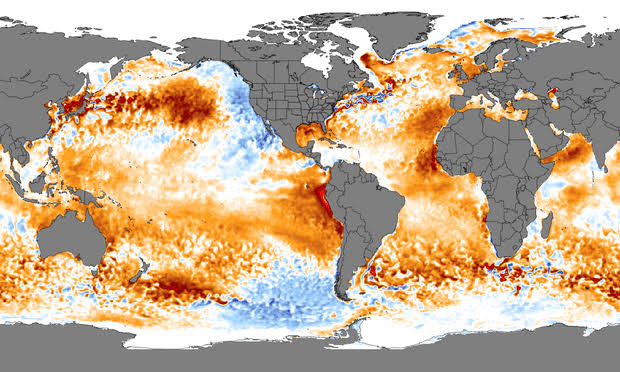Interior ocean temperatures off northeast Japan hit record 10 C higher than normal

Interior ocean temperatures off northeast Japan’s Sanriku coast hit a record high in July, the Japan Meteorological Agency (JMA) announced on Aug. 9. At a depth of about 300 meters, these temperatures were about 10 degrees Celsius higher than normal.
This phenomenon is due to the warm Kuroshio Current moving farther north than normal, and there are concerns about the impact of this on fishery resources.
The JMA’s marine meteorological observation ship Ryofu Maru conducted observations off the coast of Sanriku in late July and found that water temperatures were at a record high in an area 100 to 500 kilometers off the coast and approximately 300 km from north to south. At a depth of about 300 m, the temperature was 17 C, about 10 degrees higher than the average of around 7 C.
There is no continuous observation data of interior ocean water temperatures, but according to an analysis using a forecast model by the JMA, they were the highest in the past 30 years. The high water temperatures are expected to continue for at least a month from now.
The background to this is the northward movement of the Kuroshio Current. The Kuroshio, which turns eastward after reaching the coast of the Boso Peninsula in Chiba Prefecture, began to gradually move northward from around 2021, reaching the coast of Iwate Prefecture this spring.
According to the JMA, this is a rare phenomenon, with some studies indicating that this is the first time since 1979 that the current has moved northward to the same extent as this time. The cause is not very well known, but the JMA believes that it is not directly related to global warming.
Sea surface temperatures have remained high off the coast of Sanriku since the fall of 2022, and high water temperatures in the interior ocean are also believed to be a factor. A JMA official said, “We are concerned about the impact on the entire ecosystem, including the distribution of fishery resources.”
(Japanese original by Satoshi Yamaguchi, Lifestyle, Science & Environment News Department)




